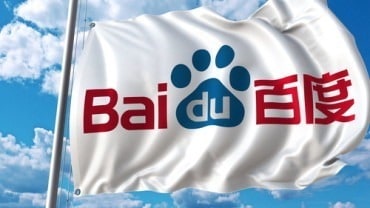
In this week’s real-time analytics news: AWS expands access to expert-level analysis via natural language processing.
Keeping pace with news and developments in the real-time analytics and AI market can be a daunting task. Fortunately, we have you covered with a summary of the items our staff comes across each week. And if you prefer it in your inbox, sign up here!
Amazon Web Services (AWS) announced that Amazon Q in QuickSight unlocks the ability for any employee to perform expert-level data analysis using natural language. Amazon Q in QuickSight is a generative AI assistant that helps employees get insights faster and make better decisions using Amazon QuickSight, AWS’s AI-powered business intelligence (BI) service. The new solution, now generally available, uses an advanced artificial intelligence (AI) agent to empower all employees to engage via natural language to perform data analysis without any specialized skills or expertise.
In particular, Amazon Q in QuickSight brings generative AI to business intelligence, transforming how employees interact with data through conversational capabilities like AI-powered executive summaries, a context-aware, multi-visual data question-and-answer experience, and customizable, interactive data stories.
Real-time analytics news in brief
Komprise announced that it is expanding its Komprise Elastic Data Migration solution to automate the end-to-end process of enterprise migrations, bringing increased efficiency and ROI for IT managers overseeing complex, large-scale data migrations. Prominent data storage technology and channel partners have adopted Komprise Elastic Data Migration as their preferred choice for moving petabyte-scale workloads, especially across hybrid IT environments. They include:
- Azure: Customers have migrated petabytes to Azure through the Azure Migrate Program, which funds the use of Komprise for cloud data migrations.
- AWS: Komprise, an AWS Advanced Tier Partner, is now prescribed by AWS for unstructured data migrations.
Akamai unveiled Akamai Cloud Inference to support organizations looking to turn predictive and large language models (LLMs) into real-world action. The solution runs on Akamai Cloud and provides tools for platform engineers and developers to build and run AI applications and data-intensive workloads closer to end users, delivering better throughput while reducing latency. Using Akamai’s solution, businesses can save on AI inference and agentic AI workloads compared to traditional hyperscaler infrastructure.
CIQ announced the availability of federation capabilities in Fuzzball, the company’s performance-intensive computing platform. This release allows engineering teams and business analysts to easily connect, manage, and share compute resources for all performance-intensive workloads (HPC and AI) that need to be deployed globally, across different sites, and even across hybrid/on-premises and public cloud infrastructures. Further, the team has also made the CIQ Fuzzball platform available on AWS, providing easier consumption and facilitating the use of elastic cloud computing resources.
Datadobi announced the general availability of the next version of its software platform, StorageMAP 7.2. The latest release introduces new metadata insights and expanded data reporting, giving Infrastructure & Operations (I&O) leaders the ability to unlock and maximize data value with unparalleled visibility and control over their sprawling data environments. StorageMAP 7.2 lowers cost, optimizes storage, reduces risk, and aligns data strategies with evolving business and regulatory demands.
Fastly announced a new update to Fastly Bot Management, delivering three key features that help organizations defend against scraping, account takeovers, and spam. For too long, websites have relied on frustrating CAPTCHAs to combat these threats, leading to poor user experiences and lost conversions. Fastly’s update gives organizations the chance to break free from the CAPTCHA cycle while helping to prevent fraud, protect customer accounts, and allow legitimate users to complete logins and checkouts without disruption.
GMI Cloud announced its Inference Engine, which ensures that businesses can unlock the full potential of their artificial intelligence (AI) applications. From chatbots to enterprise automation tools, customers no longer have to worry about infrastructure limitations. GMI Cloud’s AI inference engine delivers dynamic scaling, full infrastructure control, and global accessibility, catapulting AI development.
Imandra announced the launch of CodeLogician, a LangGraph agent that transforms source code into precise mathematical models and reasons about them using ImandraX, Imandra’s flagship automated reasoning system. This technology enables deep reasoning, formal verification, automated state-space analysis, and test-case generation for application-level software.
Instabug announced a new suite of features that help mobile teams measure, analyze, and improve user app experience. The new features – Frustration-Free Sessions, Business Impact Dashboard, and Prioritized Issues List – go beyond crash-free rates to quantify and eliminate user app frustration, empowering mobile teams to take targeted action to boost retention and engagement.
Prophecy launched Prophecy 4.0, the latest version of its AI-driven data integration platform for pipeline development, deployment, and automation. Optimized for organizations running Databricks SQL, Databricks’ serverless intelligent data warehouse, Prophecy 4.0 addresses the needs of analysts in the business, delivering self-service, production-ready data preparation that operates within guardrails defined by central IT. To that point, Prophecy 4.0 introduces an intuitive new AI-powered interface designed specifically for data analysts, further simplifying data preparation.
Quest Software announced major enhancements to its database management tools, Toad Data Studio 2.0 and Toad Data Point 6.4. These updates introduce AI-powered features, expanded database connectivity, and greater accessibility, helping organizations streamline data management across multiple platforms. Specifically, the new enhancements include AI-powered features to streamline workflows, enabling experienced DBAs to work more efficiently and empowering users with less coding experience to execute tasks confidently. Additionally, Toad Data Point 6.4 now supports Databricks, while Toad Data Studio 2.0 adds Oracle Cloud Fusion connectivity.
Red Hat announced the latest updates to Red Hat AI, its portfolio of products and services designed to help accelerate the development and deployment of AI solutions across the hybrid cloud. Red Hat OpenShift AI 2.18 adds new updates and capabilities to support Red Hat AI’s aim of bringing better optimized and more efficient AI models to the hybrid cloud. Key features include distributed serving. an end-to-end model tuning experience, AI guardrails, and model evaluation.
TDengine announced the release of TDgpt, an AI agent for advanced time-series analytics. With TDgpt, industrial enterprises can use AI models – including foundation models for time series as well as large language models (LLMs) – to perform analytics such as forecasting and anomaly detection on their operations data. In particular, TDgpt is an extensible analytics platform that includes AI and ML models for industrial data out of the box, as well as a number of traditional statistical algorithms used in time-series analytics.
Upwind announced the release of Upwind GenAI Security, a solution that empowers security teams to proactively detect and respond to threats targeting AI workloads in real time. Upwind GenAI Security delivers deep runtime visibility through eBPF, AI-specific threat detection, and proactive risk mitigation – offering groundbreaking AI security coverage. This expansion of the Upwind platform empowers organizations with purpose-built security to protect GenAI services and AI workloads from unauthorized AI communications and potential AI resource misuse.
Verdantis announced the launch of Auto-Enrich AI and Auto-Spec AI, two autonomous AI agents designed to advance data enrichment, normalization, and standardization for enterprises worldwide. Auto-Spec AI uses AI models trained on over 1 billion data points to extract key attributes, units-of-measure, and product categories from raw, unstructured data. Auto-Enrich AI autonomously sources missing data by leveraging public and proprietary databases. The enriched data is seamlessly integrated into ERP systems, enhancing data reliability.
Partnerships, collaborations, and more
Cognizant announced advancements built on NVIDIA AI aimed at accelerating the cross-industry adoption of AI technology. The work focuses on AI adoption in five key areas, including enterprise AI agents, industry-specific large language models (LLMs), digital twins for smart manufacturing, foundational infrastructure for AI, and the capabilities of Cognizant’s Neuro AI platform to integrate NVIDIA AI technology and orchestrate across the enterprise technology stack.
Databricks and Anthropic announced a strategic, five-year partnership to offer Anthropic models and services natively through the Databricks Data Intelligence Platform. Combined with Databricks Mosaic AI, the landmark deal brings Anthropic’s Claude models directly to over 10,000 companies alongside their business-critical, proprietary data. Anthropic’s newest frontier model, Claude 3.7 Sonnet, is now available via Databricks on AWS, Azure, and Google Cloud Platform.
Datavault AI announced its inclusion in IBM’s Partner Plus program. As a partner, Datavault AI will leverage IBM watsonx to enhance its AI agents—Data Vault Bank, DataScore, and DataValue—driving the next wave of AI-powered financial modeling and tokenization. This collaboration is bolstered by Datavault AI’s completed integration with CLEAR, its trusted identity and Know Your Customer (KYC) partner.
SymphonyAI extending its capabilities for manufacturers and deepening collaboration with Microsoft at the edge with Azure IoT Operations. With advanced analytics residing closer to disparate and disconnected data sources, manufacturers can optimize operations, predict equipment failures, enhance overall efficiency, and unlock AI-driven operations. Additionally, SymphonyAI’s Industrial DataOps platform, IRIS Foundry, is adding agentic AI workflows and industrial vertical templates to help manufacturers accelerate time to value.
Tessell announced the general availability of the Tessell DBaaS in the Google Cloud Marketplace. Tessell now supports Oracle, PostgreSQL, SQL Server, MySQL, MongoDB, and Milvus on all four major cloud platforms: Azure, AWS, Google Cloud, and OCI. As a fully managed database service, Tessell supports deployments across Oracle Database@Google Cloud in addition to Google Cloud Compute Engine. This development makes it easier for organizations seeking to modernize their transactional applications, database estate, and data architectures within Google Cloud’s robust infrastructure.
If your company has real-time analytics news, send your announcements to ssalamone@rtinsights.com.
In case you missed it, here are our most recent previous weekly real-time analytics news roundups:
- Real-time Analytics News for the Week Ending March 22
- Real-time Analytics News for the Week Ending March 15
- Real-time Analytics News for the Week Ending March 8
- Real-time Analytics News for the Week Ending March 1
- Real-time Analytics News for the Week Ending February 22
- Real-time Analytics News for the Week Ending February 15
- Real-time Analytics News for the Week Ending February 8
- Real-time Analytics News for the Week Ending February 1
- Real-time Analytics News for the Week Ending January 25
- Real-time Analytics News for the Week Ending January 18






























